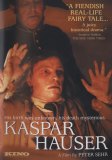| Reviews & Columns |
|
Reviews DVD TV on DVD Blu-ray 4K UHD International DVDs In Theaters Reviews by Studio Video Games Features Collector Series DVDs Easter Egg Database Interviews DVD Talk Radio Feature Articles Columns Anime Talk DVD Savant Horror DVDs The M.O.D. Squad Art House HD Talk Silent DVD
|
DVD Talk Forum |
|
|
| Resources |
|
DVD Price Search Customer Service #'s RCE Info Links |
|
Columns
|
|
|
Kaspar Hauser
DNA evidence is increasingly not only clearing the wrongly convicted, but is also asking us to radically reexamine longheld historical beliefs. The false Anastasia pretender Anna Anderson was debunked many years ago (and the real Anastasia's bones have evidently finally been found), and another supposed royal heir, Kaspar Hauser, has had his ties to German dukes also placed in the "highly doubtful" category due to more recent DNA testing. Though many historians now believe that Hauser's entire story, let alone his supposed ties to the royal house of Baden, was false, the story is just as riveting and disturbing as Anastasia's, and, like the long ago daughter of Nicholas and Alexandra, has been made into more than one equally riveting motion picture.
The real Hauser appeared, as if by magic, as a teen on the streets of Nuremberg in the 1820s in a feral state, unable to walk and speak aside from the cryptic phrase "I want to ride a horse, as my father did." He was slowly rehabilitated over the ensuing months and years and thereby told a harrowing tale of having been caged in a tiny cell from his earliest memory, with only a toy horse as a companion. Rumors soon spread that he was actually the heir to the Duchy of Baden, having been switched with another baby who was subsequently killed in order to further the succession goals of various nefarious conspirators. This of course begs the question as to why, if Hauser was indeed the real heir, he himself wasn't simply killed, thereby simplifying the plan immensely. But if you are willing to go at this film as either outright fiction, or at the very least something necessitating a willing suspension of disbelief, you'll be amply rewarded with a sumptious production, literate script, and an electrifying lead performance by Andre Eisermann as Hauser.
Though Werner Herzog's treatment of this same subject is probably better known, this film, ably directed by Peter Sehr, takes a less surreal and impressionistic route than Herzog, and provides more of a political context in which the "Hauser enigma" (to crib from Herzog's American film title) sprang. With various factions fighting over territory in an as yet un-unified Germany, the scheming to first kidnap, and then years later suddenly reveal, an heir apparent to Baden's royal house provided nemesis Bavaria with some cogent, if overly convoluted, motives. Add to this in-fighting within Baden's royal family itself, and there are multiple layers of backstabbing taking place, often simultaneously.
Sehr mounts an extremely fluid and epic production, full of beautiful German palaces and peasant countrysides. While perhaps not quite as splendorous as Herzog's frequently mind-boggling imagery, this Kaspar Hauser is an eyeful in and of itself, with expert attention to production design, costuming and cinematography.
While Herzog used the services of the literal madman Bruno S. in his title role, Sehr has the incredible talents of Eisermann, whose fish eyes and expressive mouth help paint the picture of a naif who slowly becomes more aware of both the outer world and his own inner world, into which he retreated unconciously as a child. Eisermann's depiction of the slow transformation of Hauser from a literal village idiot into a relatively cultured self-aware young man is nothing short of astonishing. Both Sehr and Eisermann won well-deserved German versions of the Oscar for their outstanding work in this film.
Anyone who has seen and loved Herzog's treatment of this same subject is probably going to be pleasantly surprised by this lesser-known doppelganger. Others who have yet to become aware of the mystery of Kaspar Hauser may well want to start with this more literal version before exploring Herzog's more opaque treatment. While Herzog prefers to use Hauser as a trope for any number of meanings, Sehr prefers to tell this amazing (if completely untrue) story for what it is, the haunting journey of a "wild child" both saved and betrayed by the culture in which he finds himself.
The DVD
Video:
The enhanced 1.78:1 image (not the 1.85:1 advertised on the box) is for the most part extremely crisp, with excellent color, good saturation and contrast. There is occasional very slight damage, with some specks and scratches, but they are very minor.
Sound:
The stereo German soundtrack is fine, with well rendered dialogue and music. English subtitles are outlined white, easy to read, and succinct if not always verbatim translations.
Extras:
A run of the mill stills gallery is the only extra featured.
Final Thoughts:
Kaspar Hauser endures as one of the most haunting mysteries of the past several hundred years. Recent debunking efforts do little to diminish the visceral impact of the story itself, and anyone familiar with at least the basic outline of the story is going to find this film enjoyable. Newcomers to the legend will also find this version probably easier to grasp than Werner Herzog's.
____________________________________________
"G-d made stars galore" & "Hey, what kind of a crappy fortune is this?" ZMK, modern prophet
|
| Popular Reviews |
| Sponsored Links |
|
|
| Sponsored Links |
|
|
| Release List | Reviews | Shop | Newsletter | Forum | DVD Giveaways | Blu-Ray | Advertise |
|
Copyright 2024 DVDTalk.com All Rights Reserved. Legal Info, Privacy Policy, Terms of Use,
Manage Preferences,
Your Privacy Choices | |||||||















